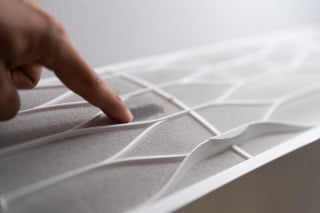Allergies can make life miserable, and unfortunately, staying indoors doesn’t always help reduce allergy symptoms. In fact, some people have worsened symptoms in their house because the air quality can be even worse than outdoor air quality. Your HVAC system can significantly reduce the amount of allergens in your home, but that’s only possible if you keep your AC maintained and recognize when you need AC repair in Lawrenceville, GA, so that your system works efficiently. Here’s how keeping your AC in good condition can help reduce problems with allergies.
Indoor Allergens
It’s important to understand the type of indoor pollutants or allergens you’re being exposed to so that you can make sure your HVAC system can sufficiently remove them from the air. Mold is commonly found in your home, even if you consider yourself a clean person. Areas with humid weather are more susceptible to mold, but keeping your AC working properly with proper maintenance removes this excess moisture that allows mold to grow.
Other common allergens in your home include pet dander, which is protein components from dead skin, saliva, or urine. Dust mites are tiny, invisible creatures that feed on human skin and pet dander, so they’re also commonly found in your home. Pollen from the outdoors also easily enters your home and causes allergy symptoms.

Filter Considerations
Your AC utilizes a filter, which is one way you can decrease the amount of allergens in the air you breathe in your home. Filters have a MERV rating, which indicates how many allergens and particles it can block. A MERV rating of 1 is the least amount being filtered, while 20 is the most comprehensive.
Most typical, flat panel filters have a rating of one to four, which means the filter is basically protecting the HVAC system from large particles, but not improving air quality much. High-efficiency filters have a MERV rating of 14 or higher and can remove very small particles that cause allergies, so they can be very beneficial. Be careful using a HEPA filter; if your AC isn’t designed to use this filter, which rates between 17 and 20, you could cause your AC to work harder and lose efficiency.
Duct and Vent Cleaning
Another thing to think about is how much dust, pollen, and dander you have sitting in your vents and air ducts. It’s a good idea to include register and vent cleaning as far into the ducts as you can with a good vacuum, but you may also want to consider getting your ducts cleaned regularly as part of AC maintenance if you’re suffering from indoor allergies. This cleaning is helpful because it allows the HVAC technician to see inside the vents and determine if there’s any mold growth that needs to be treated as well.

Professional Maintenance Perks
You should have your AC cleaned and inspected every spring for a few reasons. First of all, it ensures that everything is in working order and that any potential problems are identified and addressed. But it can also help with air quality. An inspection includes a thorough cleaning of the inside parts of your outdoor unit. This unit is exposed to all sorts of outdoor contaminants which can build up inside the unit over the winter. Cleaning the unit will remove these allergens and help you breathe easier. To schedule your next appointment or to inquire about new air conditioning installation in Lawrenceville, GA, contact Triad Mechanical today.
